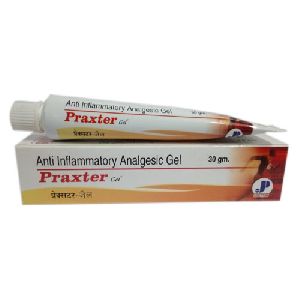

For example, people aged over 65, or those with a past history of a stomach or duodenal ulcer. Some people need an anti-inflammatory to ease pain, and yet are at increased risk of stomach bleeding. These combinations of medicines should only be used if absolutely necessary.
Prescription anti inflammatories plus#
The risk of bleeding into the stomach is increased if you are taking an anti-inflammatory plus warfarin, steroids, or low-dose aspirin (used by many people to help prevent a heart attack or stroke). Then, contact a doctor urgently, or go to a casualty department. Therefore, if you are taking an anti-inflammatory and you develop upper tummy (abdominal) pains, pass blood or black stools (faeces), or bring up (vomit) blood, stop taking the tablets. Elderly people are more prone to this problem but it can occur in anybody. Sometimes bleeding is severe, and even life-threatening. This is because the chemicals (prostaglandins) that are reduced by anti-inflammatories are also involved in helping to protect the lining of the stomach from the effects of the acid within the stomach. Bleeding into the stomach and gutĪnti-inflammatories sometimes cause the lining of the stomach to bleed. The following is not an exhaustive list but highlights some of the more important side-effects and cautions to be aware of. Also, if you have any cardiovascular (heart, stroke or blood vessel) condition, or certain gut conditions, or are elderly, they are prescribed with caution and only if there are no alternatives, and at the lowest doses and durations necessary. In particular, check if you have any of the conditions or take other medicines where the risk of side-effects is increased.įor example, one important caution is that, ideally, you should not take anti-inflammatories if you are pregnant.
Prescription anti inflammatories full#
Therefore, do read the leaflet that comes with the tablets for a full list of cautions and possible side-effects. The latest guidance for sciatica (back pain related to pressure on a nerve) is that there is little evidence for benefit from long-term use of anti-inflammatories and so they should be taken for the shortest possible time and at the lowest possible dose. If you are taking prescription NSAIDs then you can use them for as long as your doctor says that they are safe, though you should always stop and inform your doctor if you get any of the side-effects mentioned in the introduction. If taking them over the counter, there will be advice on the packet about how long they can be taken without seeing a doctor.

How long can you take anti-inflammatory tablets? These mainly (selectively) block just the COX-2 enzyme. These block both COX-1 and COX-2 enzymes. Most fall into this group, including diclofenac, ibuprofen, indometacin and naproxen. Anti-inflammatory painkillers are sometimes classified into two main groups: It is the COX-2 enzyme that is mainly involved in making the prostaglandins that are involved with pain and inflammation. There are two types of COX enzymes - COX-1 and COX-2. A reduction in prostaglandin production reduces pain and inflammation. Some prostaglandins are involved in the production of pain and inflammation at sites of injury or damage. COX enzymes help to make other chemicals called prostaglandins. NSAIDs work by blocking (inhibiting) the effect of chemicals (enzymes) called cyclo-oxygenase (COX) enzymes.

( See the separate leaflet called Aspirin and Other Antiplatelet Medicines.) If you think that you are still taking aspirin for atrial fibrillation then contact your GP as they will probably want to move you to an anticoagulant. Aspirin used to be taken for a condition called atrial fibrillation (an irregular heartbeat) but this is now treated with blood-thinning drugs (anticoagulants). Low-dose aspirin is also used to help prevent blood clots that can cause a heart attack or stroke - this is generally only done for people who have already had a heart attack or stroke or who have angina or other vascular disease, to prevent a further event, as the risks of taking aspirin for prevention outweigh the benefits for those who have not yet had such an event. Ibuprofen and aspirin are also used to bring down a high temperature. When used to reduce inflammation, you might not notice the maximum effect for up to 1-3 weeks after starting a course of tablets. This can further reduce pain and stiffness that occurs with inflammatory conditions such as rheumatoid arthritis. With repeated regular doses of NSAIDs, they also reduce inflammation. A short course of an anti-inflammatory medicine is an option to ease short bouts of painful conditions. Muscle and ligament pain (strains and sprains).Īfter a single dose, they work at least as well as paracetamol to ease pain.Anti-inflammatories are used to relieve pain in various conditions, including:


 0 kommentar(er)
0 kommentar(er)
